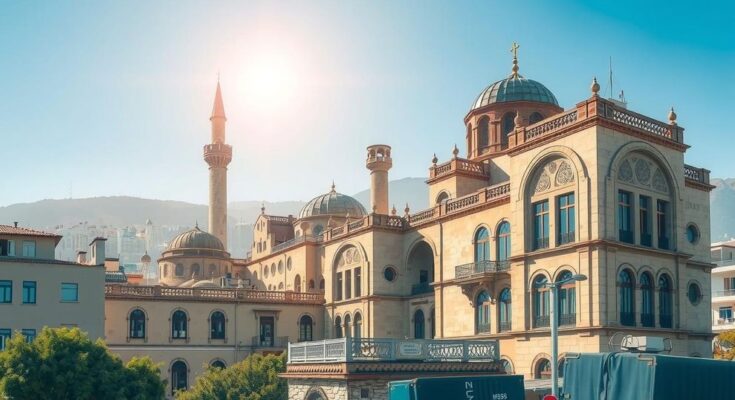The article discusses German Foreign Minister Annalena Baerbock’s visit to Damascus and Beirut. Baerbock emphasizes support for political transitions and reconstruction in Syria following the Assad dictatorship and ongoing crises in Lebanon. Discussions focused on political inclusion, transitional justice, and crucial infrastructure repair, particularly in terms of electricity supply. The reopening of the German embassy and Baerbock’s diplomatic efforts reflect Germany’s commitment to the region’s stability and recovery.
Annalena Baerbock, the German Foreign Minister, has embarked on her second visit to Damascus, emphasizing Germany’s commitment to supporting Syria’s peaceful transition and reconstruction. This visit follows the end of the Assad dictatorship, signaling Germany’s readiness to assist in rebuilding efforts. Baerbock’s itinerary included significant discussions aimed at fostering political inclusion and stability in a nation deeply scarred by civil conflict.
Prior to her time in Damascus, Baerbock visited Beirut, Lebanon, where she engaged in political dialogues amid ongoing local crises. The election of Joseph Aoun as President has revitalized hopes for vital reforms in Lebanon, and the new government under Prime Minister Nawaf Salam is optimistic about future improvements. Germany is committed to supporting Lebanon through these transformative changes, which are essential for regional stability, considering its diverse society.
In Syria, Baerbock met with interim President Ahmed al-Sharaa and Foreign Minister Assad Hassan al-Shaibani, alongside civil society members. The focus of the discussions was the urgent need for political participation across all demographics, addressing the legacy of violence and injustice perpetuated during the regime. Engaging with families affected by violence and discussing transitional justice remained central to Baerbock’s agenda, as accountability is crucial for healing and peace.
A significant challenge highlighted during Baerbock’s visit is the dire state of electricity in Syria. The country’s power supply has drastically reduced to about 20 percent of its pre-war capacity, leading to severe shortages. Efforts to reconnect Syria to the power grid are vital for economic recovery. In support of these initiatives, Germany has resumed staffing at its embassy in Damascus and is expanding its presence in the region.
In conclusion, Annalena Baerbock’s visit to Damascus and Beirut marks a pivotal step in Germany’s commitment to fostering peace and stability in Syria and Lebanon. Through political engagement, humanitarian support, and targeted reconstruction efforts, Germany aims to assist both nations in overcoming their significant challenges. Baerbock’s emphasis on inclusive governance and transitional justice underscores the need for a collective approach to healing in the region.
Original Source: www.auswaertiges-amt.de




